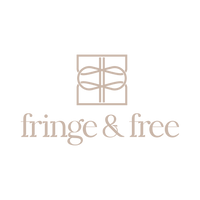Terumah (Contribution)
Parashah 19: Terumah (Contribution/Offerings)
Learn more about what a parashah is here. The heart behind this Bible portion blog is to help you develop your own daily reading habit, a daily renewing of your mind. We do this to know and love Adonai further, and to know His love for us. We share what the portion is for the week, what we took note of, and what spoke to our heart. We hope that this will help you study the Word of God and hide it in your heart, and soon you can teach someone else to do the same.
Torah (first 5 books of the Old Testament): Exodus 25:1-27:19
Haftarah (section from the Prophets): Jeremiah 34:8-22; 33:25-26
B'rit Hadashah (New Testament): Matthew 5:38-42; 15:1-20; Mark 7:1-23; Acts 23:1-11; Hebrews 9:15-22; 10:28-39
Our Notes
This portion starts with Adonai speaking to Moses while he was up on the mountain. And this entire Torah reading is full of just Adonai speaking to Moses. He had very specific things to share about the making of the tabernacle.
The first thing that stuck out to us what that the very beginning of the talk begins with instructing Moses to "accept a contribution from anyone who wholeheartedly wants to give" (Ex. 25:1). The making of the tabernacle is a monumental happening. It reveals so much about who God is, His heart, and His likings. More on that later, but for such an incredible precedent to be set of a God who dwells with His people to start with a whole-hearted contribution is special. This contribution was not a command for all to do, it seems like a free-will sort of thing. And there were all kinds of levels of offerings, making is possible for any income level to participate. What does this beginning contribution reveal about God? More on that later.
Next, Adonai shares ones sentence that truly changes the rest of existence. He says "[t]hey are to make me a sanctuary, so that I may live among them" (Ex. 25:8). This could have played out in so many ways, God could have chosen to be far away and do literally any other thing, but He chose to live among the people. And we soon see that He is very particular about His house. He knew exactly what He wanted built, what specific materials He wanted used, and what colors it would be done in.
A minor detail in verse 4 caught our eye. In the CJB, it says "fine leather" was to be used to make the covering of the tabernacle. In other versions this word is "sealskins", "badger skin", "porpoise skin", "violet skin", "sea cows", "manatee", "dolphin", "goat skin", and the list goes on. In Hebrew, this word is "tachash" skins. It's clear that this is not the easiest word to translate based on all the different translations that have been chosen. What animal was it? And isn't in interesting that many translations say it was an animal that comes from the ocean? That would have been difficult to get. If you have time, the animal behind the word "tachash" is a fun and interesting one to research. To be blunt, we don't know what animal it was, and it may be an animal that is now extinct. Based on a scripture in Psalm 69:32, a hoofed animal with a single horn is described, and brings a new layer of fun to the research dive. Are there any mammalian animals, hooved, with violet skin and a single horn that you know of?
What Spoke to our Heart
The very first section of the portion starts with an opportunity for whole-hearted contributions from the people. This must be significant since it was the very first thing mentioned. We aren't sure what it reveals, but an idea does come to mind. Recently, we got a new dishwasher. It was the first time my husband installed one, and he was excited. But so was our 5 year old son. It would have been easy for my husband to play a TV show and ask our son to leave the kitchen, especially since he had never installed one before and was a little hyper-focused on doing the job correctly. Instead of removing our son, my husband saw his excitement, and knew this was a formative moment. This would determine whether his son had good memories with dad fixing the kitchen or bad ones. Knowing his son wanted to be there and be apart, he gave him a job to hold the flashlight under the sink. We wonder if letting those whole-hearted offerings be the first part of making the tabernacle was Adonai's way of letting His children (anyone and any income) be apart of the excitement, the building, a formative moment showing His kind and Fatherly love. The master craftsmen would definitely have a huge part in making this dwelling, but what about the others? This offering made it possible for anyone who wanted to be apart.
We can relate to a season in life where we are dreaming of a home, a dream home that will check all the boxes. When we have to wait and wait, we take to Pinterest boards to plan ahead. What kind of master bath features? How many square feet? How many acres? What colors to paint the walls? When we read how exact Adonai's tabernacle plans were, it made us think that He has been looking forward to this dream house of His for awhile. He had His Pinterest boards full and when the time finally came for Him to be with His people, He was ready and prepared. Of course this is putting God in a box, for our understanding, but to be far, He kinda put Himself in a box for our sake anyways. That is the extense of this loving God we get to be children of.












